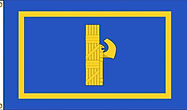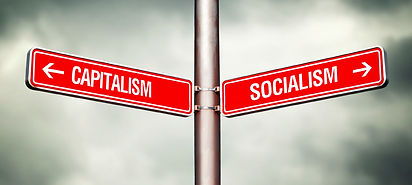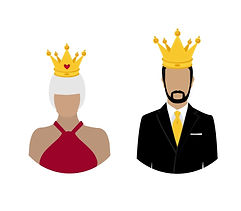WHICH IS THE DIFFERENCE?
HISTORY
NATIONALISM vs FASCISM
Nationalism is a sociopolitical movement that was developed in the eighteenth century, during the so-called era of the revolutions, the American Revolution (1779) and the French Revolution (1789).
In this movement, the people defend a culture, language, customs and other common aspects such as religion and history or past events in a given territory. Its main motive is political self-determination.
Fascism is a nationalist and totalitarian movement that emerged after the First World War with Benito Mussolini in Italy (1922-1934), however, it spreaded to other countries such as Germany (Hitler) and Spain (Francisco Franco).
The main characteristics that all fascist states share are totalitarianism or state power over the people, and violence as a means of persuasion and intimidation in society.
These countries are the examples of the fascist state par excellence. However, totalitarian states can also be found in communism, in other countries such as the Union of Soviet Socialist Republics (USSR) (1922-1991) or China, from 1945 to the present day.

Conspiracies and Insurrection of 1810 in Mexico

Italian state's flag under Mussolini's regime
_svg.png)
Spanish state's flag under Franco's regime
_svg.png)
German state's flag under Hitler's regime
NATIONALISM vs PATRIOTISM
That was easy! But what happens with patriotism? It seems the same as nationalism, right?
Nation and nationalism are words difficult to define and we can find different meanings depending on the author we focus on. The same happens with patriotism.
The Royal Spanish Academy of the language (RAE) defines patriotism as the "love for the fatherland (Patria)" or country of origin, and at the same time, it defines homeland or Patria as "land ordered as a nation, to which the human being feels bound by legal, historical and affective ties".
It is still very difficult to see the difference, however, this pair of words contains even opposing ideas.
George Orwell defines patriotism as "the devotion to a particular place and a particular way of life, which one believes to be the best in the world but has no wish to force on other people", while nationalism is "the desire for power and prestige, not for oneself but for the nation or other unit in which he has chosen to sink his own individuality".

NATIONALISM

PATRIOTISM
DEMOCRATIC SOCIALISM vs SOCIAL DEMOCRACY
Now, we are discussing two terms that cause many problems while trying to understand socialism and political wings nowadays.
Democratic socialism: Here the adjective democratic is added in order to avoid any confusion with totalitarian communism. It is also known as the reformist left, since it rejects the authoritarian methods of transition from capitalism to socialism, with the objective of decentralization and economic democracy.
It must be based on an economy where the ownership and administration of the means of production are democratically at the service of the working class and the most impoverished sectors. The aim is achieving equality, freedom and justice.
There are various forms by which the working class comes to power, but they can be summarized in two:
-
A violent revolutionary path, which has been the model historically followed to overthrow capitalism.
-
A revolutionary route NOT violent and democratic, to replace capitalism. It is now defended to a greater extent by democratic socialism.
Regardless of ideological deviations, all of them advocate social and economic organization based on collective or state ownership and administration of the means of production and distribution of goods.
Social democracy: It's an ideology that emerged in the second half of the nineteenth century in Europe. It defends elements of socialism and capitalism combined in what is known as a mixed economy and welfare state, without neglecting the ideals of social justice that characterize Left-wings politics.
Therefore, the main difference between them in general terms is the organization of the economic system in society. While democratic socialist defend the distribution of property and share of economic development, the social democracy adopts a society based on the capitalist system.
Today we can find social democracy as a political preference.

DEMOCRATIC SOCIALISM DIVISION
KING vs MONARCH
These two words seem very similar, although they differ in some small aspects that I want you to recognize.
According to the Spanish Real Academy of the Language (RAE), the king is "the sovereign of a monarchy or a kingdom." Instead, the monarch is " the sovereign of a monarchy or a kingdom."
Well, we have the same definition for both words but there is a clear and important difference between them.
Monarch is considered the one who is the head of the State of a kingdom. Today, taking as an example the kings of Spain, we can only consider Felipe VI the monarch, while Leticia is the queen since she is "the wife of the king" and she does not fulfil the same functions as the monarch. Thus, as Felipe is the one who has sovereignty, only Felipe is the Head of State in Spain.
On the other hand, during the age of the crown of Aragon and the crown of Castile (XIII-XVI), Alfonso and Isabel, both were monarchs fulfilling the functions as such in their respective crowns. In that way, Alfonso was the monarch of Aragon and Isabel was the monarch of Castile.
So, the monarch is considered the sovereign of the territory
However, in the Middle Ages kings had also sovereignty.
The key point here lies in the theory and not the practice. The change from king to monarch role happened when it was finally deducted that sovereignty and power didn't come from God.
God had been the one who provided the kings with this divine power to govern. Just the people endowed with this power or sovereignty could be considered sovereign. Thus, popes had to give that power or sovereignty to someone in order for that person to govern the territory in an unlimited and legitimate way.
However, this process changed by the time of Pepin the Short, the first king receiving episcopal anointing in the year 751. By this anointment, French kings ruled by "divine right" and therefore, they didn't require legitimation by the pope. This process was later on studied in Roman canonical law in the European universities in the late 11th century defending France's king independence.

The monarch is the one with sovereignty or power